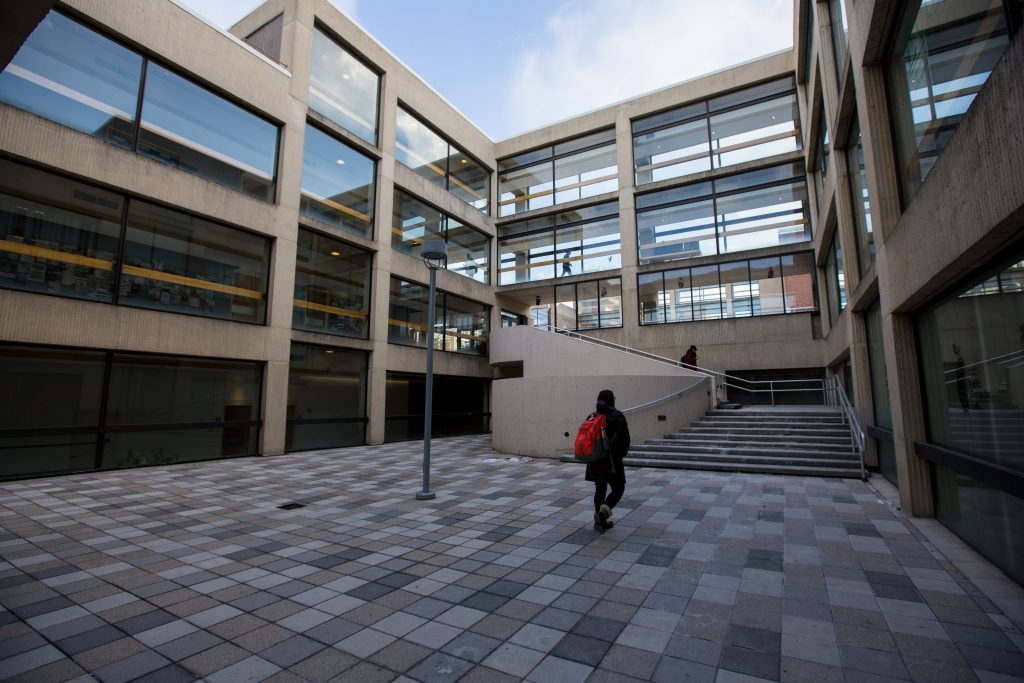Amid the coronavirus pandemic, research labs across Binghamton University’s campus are making the tough choice between changing the way they conduct research or halting research entirely until the outbreak subsides.
Tim de Smet, director of the Geophysics and Remote Sensing Laboratory and a research assistant professor of anthropology, canceled several trips abroad where he was planning on conducting fieldwork, including a trip he was supposed to go on in early April to Kyiv, Ukraine. De Smet can still conduct the geophysical research he was working on at the University, but must do so through a distance-learning format.
“In terms of local projects, I am one of the lucky ones since my research is either fieldwork acquiring geophysics and remote sensing data or computational processing of those data,” de Smet wrote in an email. “It’s easy to practice social distancing doing fieldwork with a small number of people in the middle of nowhere and I can process data remotely … The people in wet labs and with animal research are the ones that are probably the worst off.”
Jessica Hua, an assistant professor of biology, runs a wetlands ecology laboratory that is currently studying the wild populations of local amphibians. She wrote in an email that the animals her lab was planning on studying had to be returned.
The pandemic hit during the winter months, and Hua and her team were preparing for spring research. Spring is when most amphibian mating seasons begin, and Hua said it is a crucial time for her research. But plans for multiple studies were abruptly ended when the group came to an agreement to not endanger each other and the animals.
“This [decision] was driven by the fact that multiple students in my lab have preexisting conditions that would make them especially vulnerable should they contract the virus,” Hua wrote. “This combined with the thought of potentially contributing to spreading the virus by moving around doing research made it clear to us that it just wasn’t worth the risk. In the end, we decided as a group that we were not willing to risk each other’s health nor sacrifice animals for a compromised experiment due to reduced personnel. This new research can wait until next year.”
However, some students won’t be on campus next year to continue with research. Dai Bui, a senior majoring in biology, said he had to give up his last chance to do research as an undergraduate.
“Giving up this research opportunity, especially the only opportunity that I’ve had to conduct a study independently, feels as terrible as putting a pet to sleep,” Bui said. “If I happened to get the disease, I’d have to shut down my research by euthanizing hundreds of wood frog tadpoles. So I shut [it] down … The worst impact that COVID-19 has on me, as a student, is that I have to say goodbye early to my [friends] and shut down my research.”



